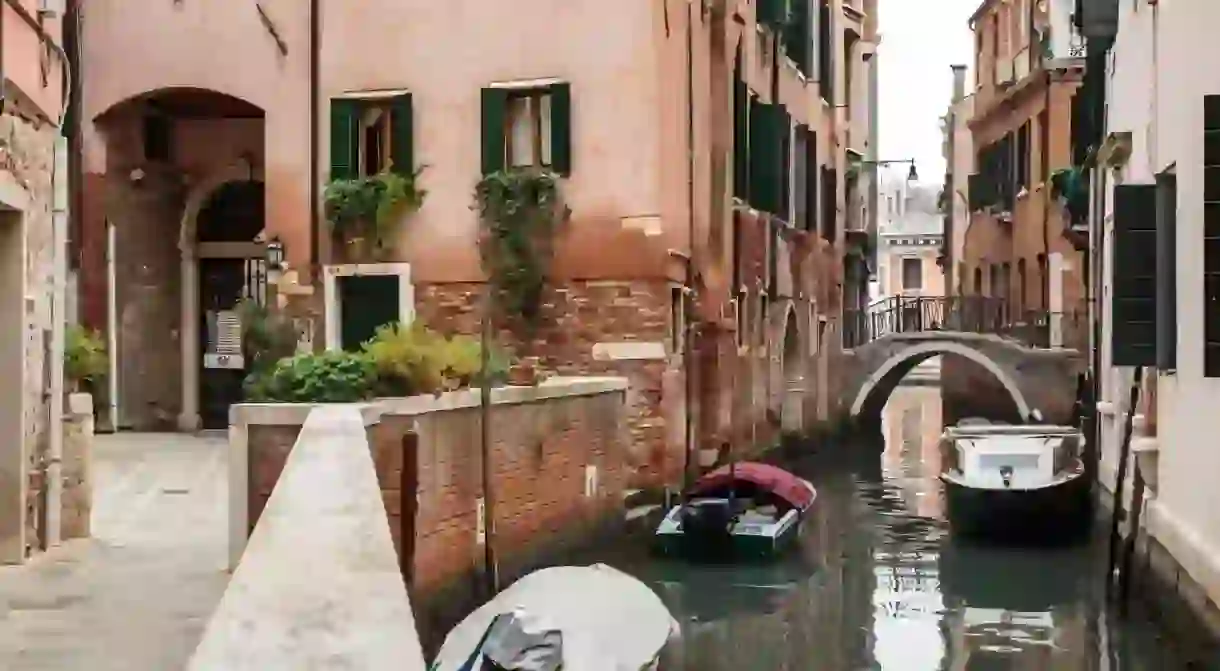How Venice Is Dealing With the Coronavirus Threat to Tourism

At this time of the year, the streets of Venice are usually filled with hordes of revellers coming together to celebrate the city’s legendary carnival. But ever since the festivities were cancelled due to the fears surrounding the coronavirus outbreak, the streets have fallen quiet. Now, a sanitary mask is a more common sight than a painted carnival mask. For a local economy that survives on tourism, the panic surrounding the virus may prove more devastating than the virus itself.

“I am not scared of the virus,” a water taxi driver (who asked for his name not to be used) says. Instead, his main concern is about the economic impact it’s having on his business. “We’ve had many fewer customers and, therefore, much less work. I don’t want the tourist season to be ruined by the current situation. The only thing we can do is stay positive.”
Andrea Nalesso, who works in a café in the usually packed Venezia Santa Lucia, says she has also witnessed a gradual fall in revenue. “It all started with the exceptional high tides in November,” she says – November 2019 saw Venice’s worst flooding in over half a century. “But the city was slowly recovering. We were looking forward to the carnival because it’s the event that attracts the most tourists to Venice. Our expectations were so high: then, however, this collective panic started.”
This climate of fear and uncertainty is, Nalesso believes, primarily fuelled by the media. “On one side, they tell us not to panic, but on the other they keep showcasing this virus as some kind of an ‘insatiable pandemic’.” Despite what some media sources are claiming, the coronavirus outbreak has not thus far been labelled a pandemic by the World Health Organisation. News organisations, she says, have been obscuring facts and recovery rates, focussing on the number of deceased rather than the fact that many of them had pre-existing conditions.

Franco Manni, the administrator of travel agency Park View Viaggi, shares this view. “The fear is not among Venetians, rather among foreigners. The media are just spreading terror and often report news that is partially inaccurate, crashing businesses. You see, we specialise in excursions, and just on Monday we received 500 cancellations. In a day! How are we going to cope?”
His colleagues, Francesca Minato and Valeria Tuzzato, agree. “We were already having a low-key carnival, due to so many Chinese and Asian tourists missing. The suspension of the carnival was the last straw, the situation is now tragic. Locals are pretty calm, but foreigners are running away like crazy,” Tuzzato tells Culture Trip.
There’s the ever-present fear, Manni says, of what this panic will mean in the long term. “Our expenses stay the same, but our revenues are plummeting. What are we supposed to do? Shall I fire people? If that wasn’t enough, we haven’t received any kind of reassurance from the local authorities. We just don’t know what to do.”
However, no matter the crisis, Venetians keep soldiering on. Walking through the city’s streets, locals keep running their businesses, doing their chores and sipping their spritz in their now-empty squares. Their strength and resilience are what keeps the city alive despite annual flooding, cruise ship dockings and overtourism.
As Nalesso says, “I am hopeful. I wish this collective panic will soon see its end, as fast as it started, and that tourists from all over the world will come back even more numerous than before to visit our Bride of the Sea.”














